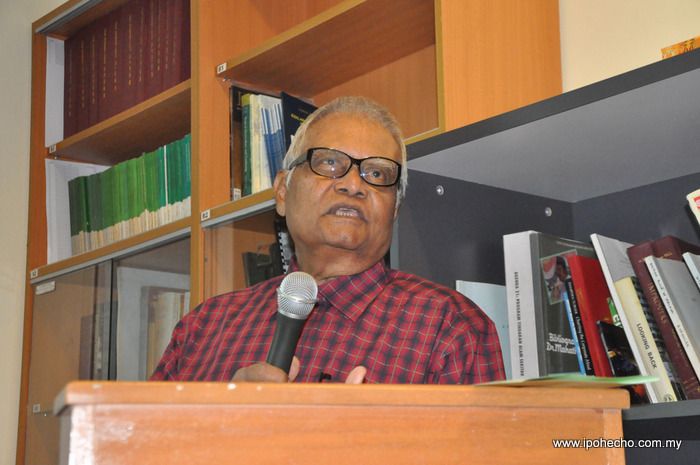The Big Five


Eighty-year-old well-travelled Mohd Khan Momin Khan, with a passion for wildlife and nature ignited by his childhood in Taiping, was the latest distinguished speaker to join the Perak Academy’s lecture series.
A Director-General at the Department of Wildlife and National Parks until 1992, his other designations include the past president of the Malaysian Nature Society and Friends of Templer Park Society.
Knowing Taman Negara National Park like the back of his hand, it was no wonder when his lecture, “The Big Five” touched on the survival of the five major animals in the country through time: the Javan Rhino, Malayan Elephant, Malay Tapir, Malayan Tiger and Gaur.
He quoted George Maxwell, author of “In Malay Forests”, who was in Straits of Malacca looking at the coast of Malaya towards the end of 1800: “Neither the season, nor the flight of time, leaves a mark upon the forest: virgin in the days of which we cannot guess the morn, virgin in our days, virgin it will remain in the days of generations yet unborn.” However, a seed of destruction was sown when the first rubber seedling was planted in Kuala Kangsar in 1877. Then, in 1911, 500,000 acres of forests were cleared and this went on as rubber was in such demand for tyres and electrical insulations. In 1999, the forest coverage in Peninsular Malaysia was 44 per cent.
According to him, among the five, the Malay Tapir is doing well in our forest because of a lack of interest in the species. However, traps, falling into wells and getting killed in road accidents are some causes of mortality of the species.
“In Peninsular Malaysia, poaching is still a serious problem. The poachers are all over the country! But they’re not really the culprit, they’re just doing the dirty job for their bosses,” he lamented.
He shared the stories behind every photo featured in his informative presentation which took place on Friday, January 15 at the Perak Academy premise at Jalan Tun Sambantan Ipoh. When asked how regular folks could get involved and do something, he replied, “I think NGOs are doing very well.”
Also present was 75-year-old Dr Francis Ng, the editor of the UTAR Agriculture Science Journal. Published quarterly since January 2015, it is available on the Internet as an open-access journal with a limited number of printed copies for distribution. It serves to tell the fascinating story of agriculture in a way that would encourage people to think of agriculture as an exciting, creating, challenging and rewarding field to enter.
“We’ve to fund this journal as we receive no governmental support,” his said during a short address towards the end of the talk. Readers who want to help in sustaining this educational venture, kindly contact him at francisng@utar.edu.my.
Mei Kuan


